- Introduction
- Ancient Origins
- Middle Ages: The Growth of Democratic Ideals
- Renaissance to Enlightenment: Philosophical Foundations
- 19th Century: Expansion and Challenges
- 20th Century: Global Shifts and Struggles
- The Spread of Democracy after World War I and the Fall of Empires
- Threats to Democracy: Totalitarian Regimes, Fascism, and Communism
- Post World War II: United Nations, Universal Declaration of Human Rights, and the Push for Global Democratic Norms
- Decolonization and the Emergence of New Democracies in Asia and Africa
- Fall of the Soviet Union and the Democratization of Eastern Europe
- Modern Challenges and Future Prospects
- Case Studies: Varied Forms of Democracy
- Direct Democracy: Switzerland’s System of Referendums and Citizen Participation
- Constitutional Monarchy: United Kingdom’s Balance of Monarchy and Democratic Institutions
- Federal Republic: The United States’ Unique Blend of Federalism and Democratic Principles
- Parliamentary Democracy: India’s Experience as the World’s Largest Democracy
- Conclusion
- Keywords
- Key Takeaways
- Frequently Asked Questions
- What is the difference between direct and representative democracy?
- Why is the Magna Carta significant in the history of democracy?
- How did Enlightenment thinkers influence modern democratic ideals?
- What challenges did democracy face in the 20th century?
- How does misinformation challenge modern democracies?
- Why is the Universal Declaration of Human Rights significant for democracies?
- How does a constitutional monarchy differ from an absolute monarchy in relation to democracy?
- How did women’s suffrage movements impact democracies?
- What makes India’s parliamentary democracy unique?
- Why is civic education crucial for sustaining democracies?
- Myths Debunked
- Myth: Democracy always leads to better economic outcomes.
- Myth: All democracies are identical in structure and practice.
- Myth: Majority rule in democracy means the majority can suppress the minority.
- Myth: Democracies are inherently peaceful and don’t wage wars.
- Myth: Voting is the only form of participation in a democracy.
- Myth: Democracies cannot limit or regulate free speech.
- Myth: Democracy is a Western concept and doesn’t fit other cultures.
- Myth: Once established, democracies are permanent and unchangeable.
- Myth: Democracies are always inefficient due to bureaucracy and debates.
- Myth: A successful democracy means unanimous agreement.
- Check Your Understanding
- Articles on The Story of Democracy
Introduction
Brief Definition of Democracy
At its core, democracy is a system of government where the citizens exercise power by voting. Rooted in the Greek words “demos” (people) and “kratos” (power), democracy is often simplified to “rule by the people.” It’s a principle where political and governing power is in the hands of the populace and can vary in form, from direct participatory systems to representative democracies. It stands in contrast to autocracies, oligarchies, or aristocracies where power is held by a single individual, a minority, or a privileged class.
Significance of Democracy in Shaping World Politics, Societies, and Human Rights
Over the millennia, democracy has evolved from a radical idea in a small Greek city-state to a globally embraced value. It’s more than a system of governance; it’s a philosophical perspective that places the inherent dignity, rights, and voice of individual citizens at its heart.
- World Politics: Democracy has significantly influenced international relationships. Democratic nations tend to foster alliances, rooted in shared governance values, leading to peace treaties, trade agreements, and collective security pacts. The “Democratic Peace Theory” even suggests that democratic nations are less likely to go to war with one another.
- Societies: Democratic societies emphasize freedom, equality, and participation. Over time, this has led to more inclusive societies where rights are not limited by gender, race, or class. The participatory nature of democracy also fosters civic responsibility and engagement.
- Human Rights: Perhaps one of the most profound impacts of democracy is its commitment to human rights. Democracies, by their very nature, prioritize individual rights, ensuring freedoms of speech, assembly, religion, and the press. The democratic principle that all citizens are equal before the law has been pivotal in challenging and overturning discriminatory practices and policies.
Overview of the Evolution of Democratic Ideals Through History
The tapestry of democracy is woven with threads from diverse civilizations and epochs. While ancient Athens is often hailed as the cradle of democracy, the ideals that shape democratic thought have ancient origins from various corners of the globe.
- Ancient Origins: The concept of democracy, or at least some elements of it, can be found in the ancient civilizations of Greece, Rome, India, and even among the tribal assemblies of the Icelandic Althing.
- Middle Ages: As monarchies spread across Europe, so did the seeds of democratic ideals. Documents like the Magna Carta and the rise of self-governing communes marked significant steps in the ongoing struggle for citizens’ rights against absolute rulers.
- Renaissance to Enlightenment: A renewed interest in individualism and human rights emerged during this period. Philosophers like Locke, Rousseau, and Montesquieu laid the intellectual foundations for the democracies we recognize today.
- Modern Era: The 19th and 20th centuries saw the rise, challenge, and global spread of democracy. From the American and French revolutions to the fall of the Soviet Union, democracy’s journey has been both triumphant and tumultuous.
In this exploration, we’ll delve deep into each of these periods, examining the evolution of democracy’s most cherished ideals and its persistent challenges.
Join us on this historical odyssey, as we journey through time to understand the origins, evolution, and future prospects of this transformative idea – democracy.
Ancient Origins
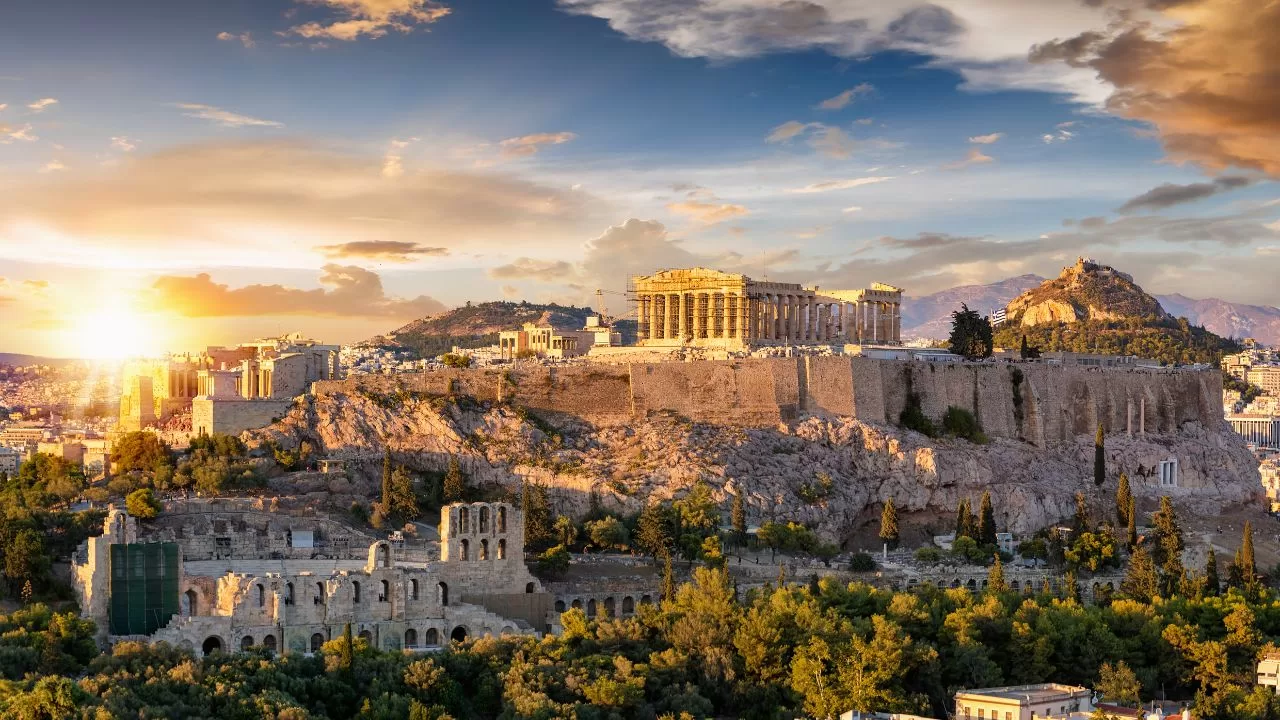
Ancient Greece, Specifically Athens: Concept of “demos” and “kratos”
In the mosaic of human civilization, Athens stands out as a seminal piece, glistening with the first traces of democratic ideals. The Athenian form of governance took root around the 5th century BC, built on the words “demos” (people) and “kratos” (power), encapsulating the essence of “power to the people.”
Ancient Athenian democracy differed significantly from modern representative democracies. It was a direct democracy where citizens (albeit a limited group mainly comprising of adult male landowners) could participate in decision-making processes. Issues such as public policy, laws, and even military strategies were debated and decided upon by these citizens, marking a profound departure from monarchies or oligarchies that dominated other city-states.
The Athenian Assembly and the Importance of Citizen Participation
Central to Athenian democracy was the Ekklesia, or the Assembly. Citizens gathered on the Pnyx, a hill in Athens, to discuss and decide upon public matters. No matter one’s wealth or lineage, every citizen had an equal voice in this assembly. This practice of citizen participation was not just a duty but an integral part of an Athenian’s identity.
Such participation led to a culture of public debate and discourse, where ideas were judged on their merit, not the prominence of their speaker. This egalitarian approach was revolutionary and laid the foundation for future generations’ understanding of democratic governance.
Other Ancient Civilizations with Democratic Elements:
- Roman Republic:
Before the rise of the Roman Empire, the Roman Republic (509–27 BC) introduced significant democratic procedures. The Republic had a complex system of checks and balances, with two elected consuls, the Senate, and popular assemblies. While not democratic in a modern sense, the Republic’s system ensured a degree of accountability and citizen participation in governance.
- India’s Early Vedic Period:
Ancient India, during the Vedic period (circa 1500-500 BC), showcased elements of grassroots democracy. The sabha (assembly) and samiti (council) were important gatherings where tribal leaders and elders met to discuss and decide on matters of governance, warfare, and justice. Although these institutions weren’t democratic by today’s standards, they signified an early form of participatory governance.
- Icelandic Althing:
Considered one of the oldest parliaments in the world, the Icelandic Althing was established in 930 AD. It was an outdoor assembly where chieftains gathered to discuss laws, adjudicate disputes, and make communal decisions. The Althing is an example of early democratic principles in practice, with a focus on communal participation and consensus-building.
While Athens is frequently hailed as democracy’s birthplace, it’s essential to recognize that the impulse towards participatory governance and the value of individual voices in decision-making processes have roots in multiple cultures and civilizations. These ancient endeavors, each in their unique way, sowed the seeds for the more formalized democratic structures that would emerge in later centuries.
Middle Ages: The Growth of Democratic Ideals
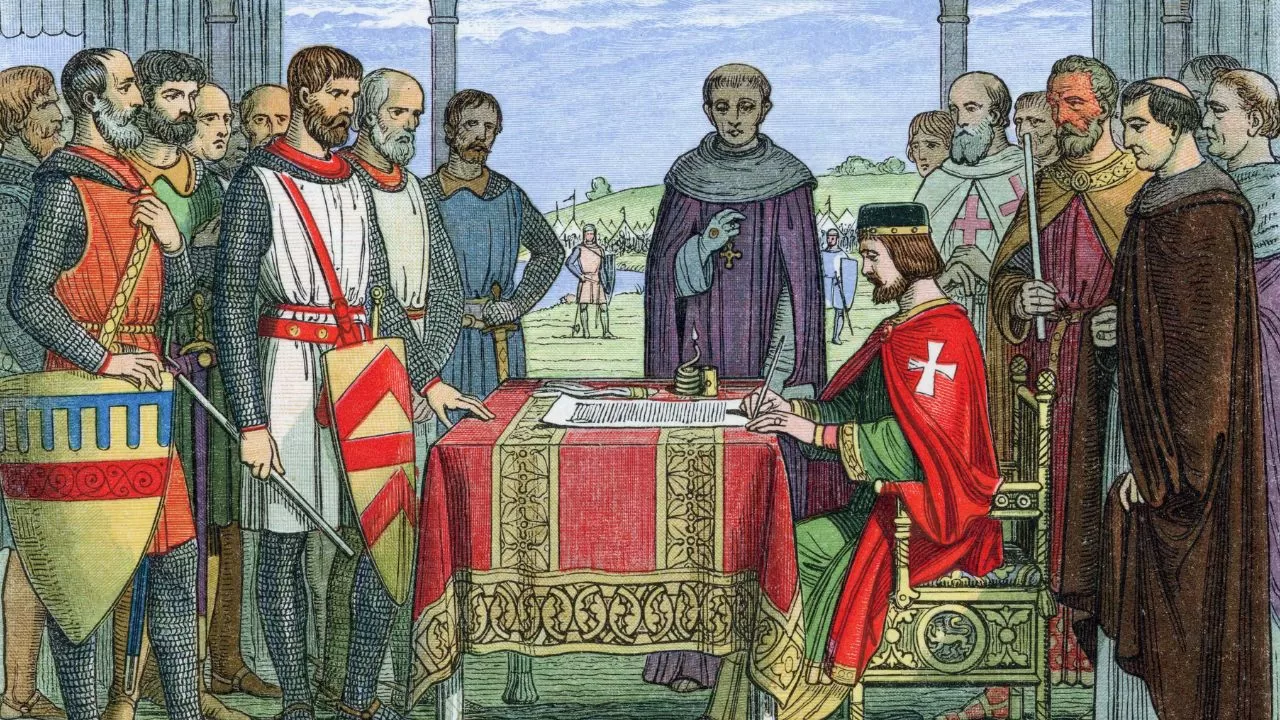
The Magna Carta, 1215: How it Limited the Power of the King and Paved the Way for Constitutional Monarchy
The Magna Carta, often revered as the cornerstone of constitutional law, was signed in 1215 by King John of England at Runnymede. Initially drafted as a peace treaty between the disgruntled English barons and the despotic King John, the Magna Carta evolved into a powerful symbol of the rights of the individual against unchecked monarchical power.
Key principles embedded within the Magna Carta include:
- Rule of Law: The King, no matter how powerful, was not above the law. This was a revolutionary assertion at the time, challenging the divine rights of monarchs.
- Protection Against Arbitrary Detention: The Magna Carta asserted that no free man could be imprisoned or stripped of his rights without the judgment of his peers or the law’s adherence.
- Consent for Taxation: It established the rudimentary principle that taxes could not be levied without the common council’s approval, laying the foundation for the legislative oversight of taxation.
Though initially disregarded, over time, the Magna Carta became the bedrock for establishing constitutional governance, setting the precedent that rulers must adhere to existing laws and respect certain fundamental rights.
Medieval European Communes: Citizens’ Self-governance in City-states
As feudalism’s grip started loosening in the Medieval era, European city-states or communes began emerging as significant centers of trade, culture, and governance. Within these communes, citizens, particularly merchants and craftsmen, sought autonomy from local lords and established their own forms of self-governance.
These city-states, especially evident in regions like northern Italy (Florence, Genoa, Venice) and the Low Countries (Bruges, Ghent), implemented systems that allowed citizens to participate in governance. They had councils, guild structures, and elected representatives responsible for decision-making and upholding communal laws. This participatory governance was crucial, reflecting a budding form of democracy where citizens played an active role in shaping their city’s future.
The Icelandic Althing and its Unique System of Governance
While we’ve touched upon the Icelandic Althing earlier, it’s worth delving deeper into its unique democratic model during the Middle Ages. Situated in Þingvellir (Thingvellir), the Althing was not just an assembly but also a significant event in the Icelandic social calendar.
- Outdoor Assembly: The Althing’s open-air nature allowed widespread participation, with chieftains and free men from all over Iceland coming together annually.
- Legislative and Judicial Functions: The Althing was where new laws were proposed, discussed, and enacted. Additionally, it played a judicial role, resolving disputes and making judgments.
- Law Speaker: One of the Althing’s unique positions was the Law Speaker (Lögsögumaður), an elected official responsible for reciting and interpreting the law for the assembly.
The Althing, with its emphasis on consensus and collective decision-making, stands as a testament to the democratic impulses that persisted even in the seemingly inhospitable environments of the medieval North.
The Middle Ages, often viewed through a lens of feudalism and church dominance, were more dynamic than often credited. Amidst the era’s intricacies, the seeds of democratic ideals were sown and nurtured, laying groundwork for the more formalized democracies that would emerge in subsequent centuries.
Renaissance to Enlightenment: Philosophical Foundations
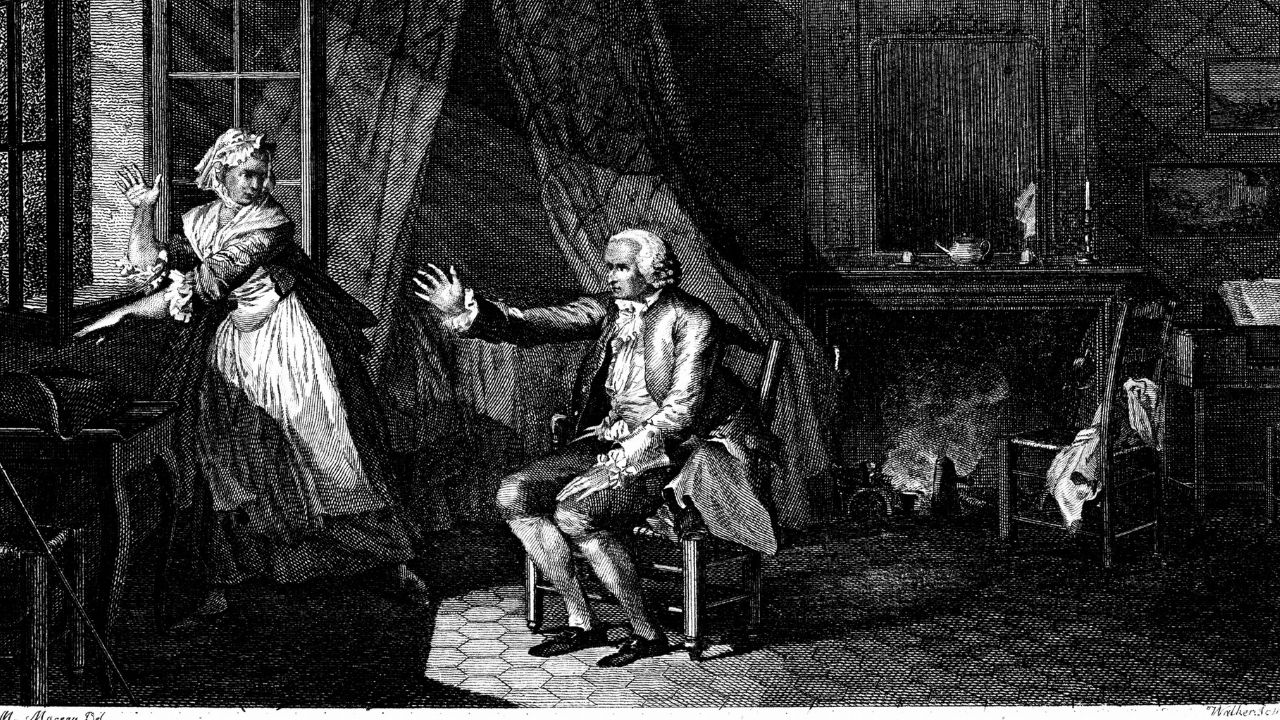
Influence of Renaissance Thinkers and Rise of Individualism
The Renaissance, spanning roughly from the 14th to the 17th century, was a fervent period of European cultural, artistic, political, and intellectual revival. One of its most profound legacies was the promotion of individualism. Thinkers and artists started to emphasize human potential, value, and dignity, steering away from the Middle Ages’ collectivist and divine-focused narratives.
Pioneers like Leonardo da Vinci, Michelangelo, and Petrarch championed the value of individual creativity, achievement, and inquiry. Such emphasis on the individual laid the groundwork for the idea that every person has intrinsic rights and values, a philosophy that would be instrumental in shaping democratic ideologies.
Key Enlightenment Philosophers:
- John Locke and his Theory of Natural Rights and Social Contract:
Often termed the “Father of Liberalism,” John Locke’s philosophy deeply influenced democratic thinking. He proposed that individuals possess natural rights to life, liberty, and property. Governments, he believed, are formed through a social contract where individuals surrender certain freedoms to ensure collective security and order. Critically, Locke argued that if a government fails to protect these rights, the populace has the right to overthrow it.
- Jean-Jacques Rousseau and the General Will:
Rousseau brought forth the concept of the “General Will” – the collective will of the citizenry. He believed that for laws to be just and legitimate, they must align with the General Will. Rousseau’s idea emphasized the collective decision-making process, advocating for direct democracy and societal equality.
- Montesquieu and the Separation of Powers:
Baron de Montesquieu’s “The Spirit of the Laws” expounded on the separation of governmental powers. He postulated that to ensure liberty, political power must be divided among different branches, so no single entity holds absolute authority. This concept profoundly influenced the creation of checks and balances in modern democracies.
The Influence of Democratic Ideals on Revolutions:
- American Revolution:
The seeds of Enlightenment thinking found fertile ground in the American colonies. Grievances against British colonial rule, combined with Enlightenment ideals, led the American colonists to revolt in 1775. The subsequent Declaration of Independence in 1776 echoed Locke’s sentiments, proclaiming “unalienable Rights” of “Life, Liberty and the pursuit of Happiness.” The revolution culminated in the establishment of the United States and its constitution, both deeply rooted in democratic ideals.
- French Revolution:
A mere decade after the American Revolution, France was consumed by its revolutionary fervor. Driven by social inequality and inspired by Enlightenment thought, the French Revolution sought to overturn the old aristocratic order. The revolution introduced radical reforms, including the Declaration of the Rights of Man and of the Citizen, which echoed the rights of individual liberty and equality. Though the revolution experienced tumultuous phases, including the Reign of Terror, it permanently ingrained democratic ideals in the French consciousness.
The period spanning the Renaissance and Enlightenment was not merely a time of philosophical evolution but a transformative era that reshaped the political landscape. The ideas birthed during this time weren’t abstract musings; they were actionable concepts that catalyzed revolutions and laid the foundations for democracies worldwide.
19th Century: Expansion and Challenges

Spread of Democracy in Europe and the Americas
The 19th century witnessed an accelerated spread of democratic ideals across Europe and the Americas. The American and French Revolutions had reverberated, inspiring liberal movements throughout the continent.
- Europe: The early part of the century saw a wave of revolutions across Europe, especially in the pivotal year of 1848, where uprisings erupted in countries like France, Germany, Italy, and the Austrian Empire. While not all were immediately successful in establishing lasting democracies, they planted the seeds for future democratic movements. By the end of the century, several European nations had adopted constitutions, expanded suffrage, or instituted parliamentary reforms that favored democratic governance.
- Americas: Meanwhile, in Latin America, nations were breaking free from Spanish colonial rule. Bolívar, San Martín, and others led liberation movements that resulted in the establishment of new republics across the continent. While these nations’ democratic foundations were sometimes shaky, the ideal of representative government became a staple.
The Impact of the Industrial Revolution on Democratic Societies
The Industrial Revolution, beginning in Britain in the late 18th century and spreading globally, brought about significant socio-economic and political shifts. Urbanization skyrocketed as people flocked to cities for work in burgeoning industries. This vast urban working class began to demand better living conditions, workers’ rights, and political representation.
However, the rapid industrial growth also led to significant disparities in wealth and living conditions. This dichotomy pressured governments to address social inequalities, eventually leading to labor rights, social welfare programs, and further democratic reforms.
Rise of Representative Democracies
As the 19th century progressed, the model of representative democracy, wherein citizens elect officials to represent their interests, gained traction. This model provided a more feasible approach to governance for growing nation-states than direct democracy.
Countries like Britain expanded suffrage considerably during the century, moving away from limited voting rights based on property ownership to more inclusive models. The concept of political parties also became more formalized, offering citizens a choice in ideologies and governance styles.
Women’s Suffrage Movements and Their Role in Expanding Democratic Participation
The 19th century also marked the onset of organized efforts to address one of democracy’s glaring oversights: the exclusion of women from the political process.
- Early Movements: Women’s suffrage movements began to gain momentum, especially in Western democracies. In the U.S., figures like Susan B. Anthony and Elizabeth Cady Stanton campaigned fervently for women’s rights, leading to the Seneca Falls Convention in 1848, a seminal event in the American women’s rights movement.
- Global Spread: Across the Atlantic, suffragettes in the UK, led by figures like Emmeline Pankhurst, used both peaceful and confrontational tactics to draw attention to their cause. By the century’s end, the push for women’s suffrage had become an international movement, with countries like New Zealand granting women the right to vote in 1893.
The 19th century was transformative for the evolution of democracy. The simultaneous growth of national identities, the push for broader representation, and the challenges introduced by industrialization created a dynamic century that expanded democratic participation and laid the groundwork for the challenges and victories of the 20th century.
20th Century: Global Shifts and Struggles
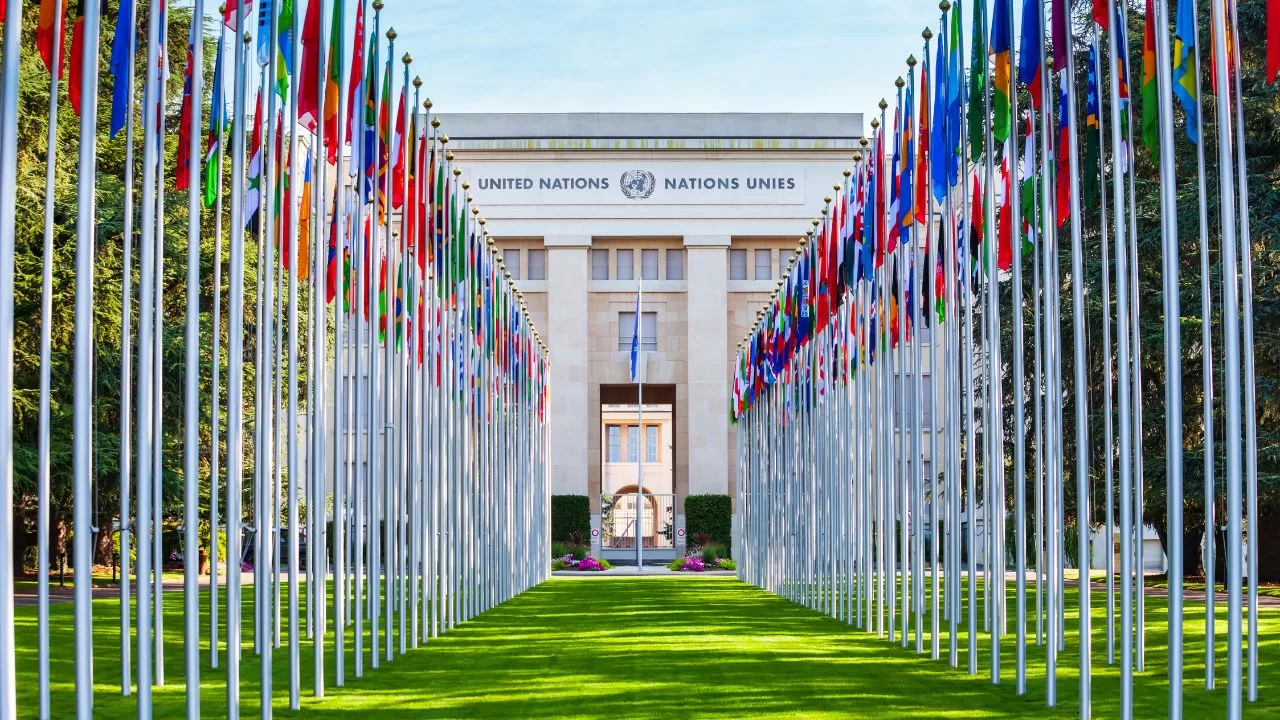
The Spread of Democracy after World War I and the Fall of Empires
World War I (1914-1918) fundamentally altered the global landscape. The aftermath saw the collapse of empires, such as the Austro-Hungarian, Ottoman, German, and Russian empires. The Treaty of Versailles and other post-war settlements aimed at establishing a new international order based on self-determination and democratic governance. Newly independent nations emerged from the debris of fallen empires, and there was an initial wave of democratization.
The League of Nations, founded in 1920, hoped to maintain international peace and cooperation, though it would face severe limitations in its effectiveness.
Threats to Democracy: Totalitarian Regimes, Fascism, and Communism
Despite the early optimism, the interwar period witnessed a rise in anti-democratic ideologies:
- Fascism: Italy saw the emergence of Benito Mussolini’s Fascist regime in the 1920s, which extolled nationalism and rejected both democracy and communism. Fascism’s appeal spread, most notably to Germany, where Adolf Hitler’s Nazi party seized control, leading to the catastrophic events of World War II.
- Communism: The 1917 Russian Revolution birthed the world’s first communist state. Under Lenin and later Stalin, the Soviet Union opposed both capitalist democracies and fascist states, creating a new geopolitical rivalry.
Both ideologies, in their own ways, posed existential threats to democratic ideals and institutions throughout the century.
Post World War II: United Nations, Universal Declaration of Human Rights, and the Push for Global Democratic Norms
The devastating impact of World War II, with atrocities like the Holocaust, led to global efforts to ensure such horrors were never repeated.
The United Nations (UN) was established in 1945, aiming to foster international cooperation and prevent conflict. One of its early acts was adopting the Universal Declaration of Human Rights in 1948, a landmark document affirming the rights and freedoms of all individuals.
The post-war world saw a clear bifurcation, with the U.S. and its allies promoting democratic capitalism and the Soviet Union and its satellites advocating communism. This Cold War ideological struggle would shape global politics for decades.
Decolonization and the Emergence of New Democracies in Asia and Africa
The mid-20th century marked a wave of decolonization, particularly in Asia and Africa. Countries under European colonial rule sought and, in many cases, successfully achieved independence.
While some new nations, such as India, successfully established robust democratic institutions, others faced challenges like ethnic conflict, economic struggles, or authoritarian rule. The legacy of colonialism, combined with Cold War geopolitics, made the path to democracy complex and non-linear for many of these states.
Fall of the Soviet Union and the Democratization of Eastern Europe
The closing decade of the 20th century saw one of the most astonishing political shifts in history. Economic issues, internal reforms like Glasnost and Perestroika, and popular movements led to the gradual weakening and eventual dissolution of the Soviet Union in 1991.
Eastern European nations, once under Soviet influence, began transitions to democracy. The Berlin Wall’s fall in 1989 symbolized this profound geopolitical shift. The subsequent years saw the spread of democracy in regions previously thought resistant to it.
The 20th century, with its dramatic highs and lows, underscored democracy’s resilience. While the century bore witness to profound threats against democratic ideals, it also showcased humanity’s unwavering quest for freedom, rights, and representation. The lessons from these hundred years are invaluable for understanding the complexities and imperatives of preserving democracy in the contemporary world.
Modern Challenges and Future Prospects

Threats to Democracy in the 21st Century:
As the world entered the new millennium, democracy, though resilient, faced renewed challenges that tested its adaptability in an increasingly interconnected and complex global landscape.
- Rise of Authoritarianism: Despite the spread of democracy at the end of the 20th century, the 21st century has seen a notable resurgence of authoritarian tendencies in various regions. Leaders in some countries have consolidated power, suppressing opposition, and curtailing freedoms. This ‘democratic backsliding’ often occurs under the guise of populism or nationalistic fervor.
- Challenges from Digital Misinformation and Social Media: The digital revolution, while connecting the world, has brought about new challenges. Misinformation and ‘fake news’ spread rapidly via social media platforms, undermining informed political discourse. Furthermore, algorithms that prioritize sensational content can polarize communities and create echo chambers, hindering constructive dialogue.
- Economic Inequalities: Globalization and technological advancements have led to unprecedented wealth creation but have also widened the economic divide. Economic disparities can lead to political power imbalances, with the wealthy exerting disproportionate influence, thereby eroding the democratic principle of equal representation.
Recent Grassroots Movements Advocating for Democratic Reforms Worldwide:
Despite the challenges, the spirit of democracy remains vibrant, as evidenced by grassroots movements across the globe:
- Pro-democracy protests in Hong Kong, pushing back against mainland China’s increasing influence.
- Mass movements in countries like Sudan and Algeria, where citizens demand democratic transitions.
- Movements like Black Lives Matter in the U.S., advocating for racial justice and equitable democratic representation.
These movements underscore that the drive for democratic representation and rights remains a potent force worldwide.
The Importance of Civic Education and Participation:
To navigate these challenges, the role of civic education becomes paramount. Democracies thrive when their citizens are informed, engaged, and understand the foundational principles and responsibilities:
- Civic Education: Educational institutions must prioritize teaching democratic values, the mechanics of governance, and the importance of active participation. This helps in creating a populace that can critically evaluate information and make informed decisions.
- Active Participation: Democracy is not a spectator sport. It requires active engagement, from voting to community organizing, to holding leaders accountable. Apathy or disillusionment can be corrosive, and it’s vital that citizens view participation as both a right and a responsibility.
In conclusion, while the 21st century presents novel challenges to democratic ideals, it also offers new tools and avenues for its defense and propagation. The interplay between technological advancements, shifting global politics, and the ever-present human yearning for freedom and representation will determine democracy’s trajectory in this century. However, one thing is clear: the onus lies on each generation to understand, adapt, and, if necessary, reinvent democratic institutions for the modern age, ensuring they remain robust and inclusive.
Case Studies: Varied Forms of Democracy
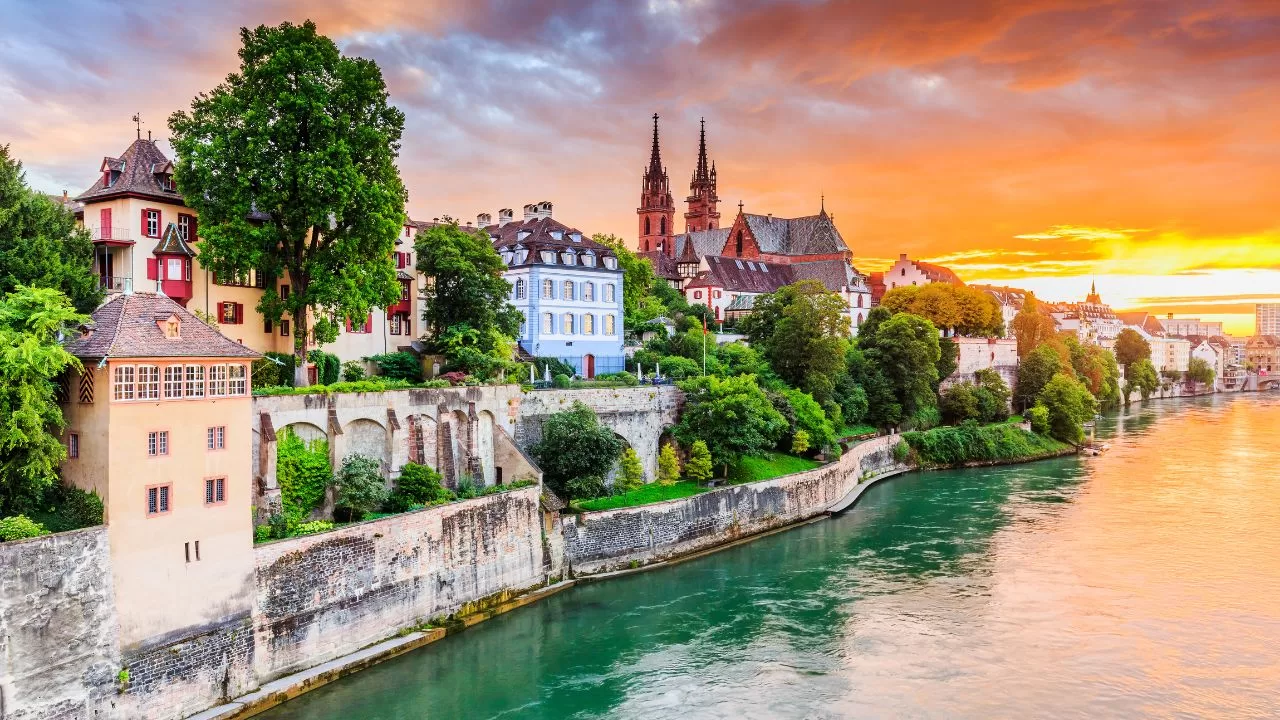
Direct Democracy: Switzerland’s System of Referendums and Citizen Participation
Switzerland stands as a unique example of a nation that incorporates direct democracy into its governing structure. While it has representative institutions, Swiss citizens have the right to challenge laws passed by Parliament through a system of referendums. If they can gather a certain number of signatures, a national vote is held. Additionally, the “initiative” process allows citizens to propose changes to the Swiss constitution. This regular involvement of citizens in decision-making processes ensures that the government’s actions closely reflect the people’s will.
Constitutional Monarchy: United Kingdom’s Balance of Monarchy and Democratic Institutions
The United Kingdom is a prime example of a constitutional monarchy where the monarch holds a ceremonial position without governing powers. The real political authority rests with the Parliament, particularly the elected House of Commons. Over the centuries, through events like the signing of the Magna Carta and the Glorious Revolution, the power of the monarchy was gradually reduced, leading to the establishment of a democratic system that respects the ceremonial importance of the monarchy while ensuring that real political power is held by elected representatives.
Federal Republic: The United States’ Unique Blend of Federalism and Democratic Principles
The United States operates as a federal republic, meaning it has a division of powers between the national government and individual states. The U.S. Constitution, framed in 1787, establishes this system, ensuring that both levels maintain certain autonomous powers. This federal structure is combined with democratic principles, where officials, including the President, are elected either directly or indirectly by the people. The U.S. system also emphasizes checks and balances among its three branches: Executive, Legislative, and Judicial, ensuring that no single branch can dominate the others.
Parliamentary Democracy: India’s Experience as the World’s Largest Democracy
India, after gaining independence from British rule in 1947, adopted a parliamentary system of governance. It’s characterized by a dual executive system, comprising the President (ceremonial head of state) and the Prime Minister (head of government). The real power and governance lie with the Prime Minister and the Council of Ministers. What’s significant about India is the sheer scale of its democratic exercise. With over a billion citizens, India’s elections are a massive undertaking and a testament to its commitment to democratic principles amidst vast diversity in terms of religion, language, and ethnicity.
In analyzing these varied systems, it’s evident that democracy isn’t a one-size-fits-all model. Different nations, influenced by their unique histories, cultures, and challenges, have molded democracy to fit their contexts. While the structures and mechanisms might differ, the core principle remains: a government of the people, by the people, and for the people. These case studies underscore the adaptability of democratic ideals and their global relevance.
Conclusion
Reflection on the Resilience and Adaptability of Democratic Ideals
History is awash with tales of empires that rose and fell, ideologies that came and went, and systems of governance that were tested, redefined, or discarded. Yet, among these ever-evolving paradigms, the ideals of democracy have showcased remarkable resilience. From the direct democratic assemblies of ancient Athens to the vast representative democracies of the modern era, the foundational principle—that power should stem from the will of the people—has endured. This endurance speaks to the adaptability of democratic ideals. Different cultures, facing distinct challenges, have molded and reshaped democracy, proving its universal relevance.
The Ongoing Quest for a More Inclusive and Just Democratic World
While democracy has made monumental strides, the journey towards a truly inclusive and just democratic world continues. Every era brings new challenges: from the suffrage movements of the 19th and early 20th centuries, which sought to expand the franchise, to the current struggles against misinformation, rising authoritarianism, and economic inequalities. Yet, with each challenge, democracy has also found champions—activists, thinkers, and ordinary citizens who push for reform, inclusion, and justice. Their efforts serve as a reminder that democracy, at its core, is an ongoing quest to realize the ideals of liberty, equality, and fraternity.
The Responsibility of Current and Future Generations in Upholding and Evolving Democratic Traditions
As guardians of the present and architects of the future, the onus falls upon current and forthcoming generations to uphold and evolve democratic traditions. This responsibility isn’t merely about participating in elections or being aware of one’s rights. It extends to fostering a culture of critical thinking, championing the values of tolerance and dialogue, and ensuring that the marginalized and disenfranchised find their voice. It’s also about recognizing that democracy is a living entity—requiring constant care, introspection, and occasionally, reinvention.
The story of democracy is not one of a static system but of a dynamic ideal. It’s a tale that has been written over millennia and one that will continue to be scripted by the choices, actions, and aspirations of those who believe in a world where power truly belongs to the people.
In the end, democracy’s narrative is humanity’s narrative—a testament to our collective desire for dignity, agency, and a shared stake in shaping our destinies.
Keywords
- Democracy: A system of government in which power is vested in the people, who rule either directly or through freely elected representatives.
- Ancient Athens: A city-state in ancient Greece that is often considered the birthplace of democracy due to its system of governance where eligible citizens had a direct role in decision-making.
- Demos and Kratos: Greek words that translate to “people” and “power” respectively; the foundation of the term “democracy.”
- Athenian Assembly: An institution in ancient Athens where male citizens gathered to make decisions on public policy.
- Roman Republic: A period in ancient Rome characterized by a republican system of government where officials were elected by the citizens.
- Vedic Period: An ancient era in India marked by the composition of the Vedas and notable for its assemblies, like the ‘sabha’ and ‘samiti’, which had elements of democratic governance.
- Icelandic Althing: Established around 930 AD, it’s one of the world’s oldest parliaments, where chieftains gathered to make decisions for the Icelandic commonwealth.
- Magna Carta: A charter agreed upon in 1215, which limited the powers of the English monarch and laid the groundwork for constitutional monarchy.
- Medieval European Communes: Self-governing city-states in medieval Europe where citizens had a say in local governance.
- Renaissance: A cultural movement in Europe between the 14th and 17th centuries marked by a renewed interest in classical art, literature, and thought.
- John Locke: A 17th-century Enlightenment philosopher known for his theory of natural rights and the social contract, asserting that governance requires the consent of the governed.
- Jean-Jacques Rousseau: An Enlightenment thinker known for his concept of the “general will,” suggesting that a community’s collective decisions express its true interests.
- Montesquieu: A philosopher who introduced the idea of the separation of powers in governance, which influenced many modern constitutions.
- American Revolution: A war (1775-1783) where thirteen American colonies successfully rebelled against British rule, leading to the formation of the United States of America and the establishment of a democratic republic.
- French Revolution: A social and political upheaval in France (1789-1799) which led to the end of monarchy and the rise of democratic ideals, though also marked by significant internal conflict.
- Industrial Revolution: A period in the 18th and 19th centuries marked by significant technological advancements that transformed economies, societies, and political structures.
- Women’s Suffrage: The movement advocating for women’s right to vote, leading to significant democratic reforms in the 19th and early 20th centuries.
- Totalitarianism: A system of government in which the state holds total authority over society and seeks to control all aspects of public and private life.
- Fascism: A far-right, authoritarian political ideology characterized by dictatorial power, strong nationalism, and often racism.
- Communism: A socio-political ideology that advocates for a classless society where the means of production are owned collectively by the community.
- United Nations: An international organization established in 1945 to promote peace, security, and cooperation among member states.
- Universal Declaration of Human Rights: Adopted in 1948 by the United Nations, it sets out fundamental human rights that should be universally protected.
- Decolonization: The process by which colonies gained independence from colonial powers, particularly after World War II.
- Soviet Union: A socialist state that existed from 1922 to 1991, consisting of multiple nationalities and being a major world power. Its dissolution in 1991 led to the emergence of several independent nations.
- Authoritarianism: A system of governance characterized by strong centralized power, limited political freedoms, and often a lack of constitutional accountability.
- Misinformation: False or inaccurate information, often spread without awareness that it’s false.
- Direct Democracy: A system where citizens make laws and decisions directly, rather than through representatives.
- Constitutional Monarchy: A system where the monarch acts as the ceremonial head of state within the parameters of a constitution, while real political power lies with elected representatives.
- Federal Republic: A union of states or provinces with a representative democracy where both the union and its members retain certain autonomous governance powers.
- Parliamentary Democracy: A democratic system where executive authority derives from the legislative branch and is accountable to it, typically with a ceremonial head of state and a head of government.
Key Takeaways
- Democracy Defined: Democracy is a system where power is vested in the people, emphasizing either direct or representative forms of governance.
- Historic Roots: Democracy’s origins trace back to ancient civilizations, notably in Athens with its assembly, but also in the Roman Republic, India’s Vedic assemblies, and Iceland’s Althing.
- Medieval Advancements: The Magna Carta symbolized the beginning of constitutional monarchy by limiting royal power. Medieval European communes and the Icelandic Althing also showcased self-governance.
- Philosophical Foundations: The Renaissance and Enlightenment periods brought forth thinkers like Locke, Rousseau, and Montesquieu, who laid intellectual groundwork for democratic governance.
- Democratic Revolutions: Democratic ideals were pivotal in inspiring and guiding the American and French Revolutions.
- 19th Century Growth: The 19th century saw democracy spreading across Europe and the Americas. This era also witnessed the emergence of representative democracies and movements like women’s suffrage.
- 20th Century’s Global Shifts: Post-WWI, democracy spread further, but faced threats from totalitarianism, fascism, and communism. The UN’s Universal Declaration of Human Rights set global norms. Decolonization also saw the birth of new democracies, while the fall of the Soviet Union democratized Eastern Europe.
- Modern Challenges: The 21st century introduced threats like rising authoritarianism, digital misinformation, and economic inequalities. Yet, grassroots movements continue pushing for democratic reforms.
- Varied Forms: Democracy isn’t monolithic. Switzerland emphasizes direct democracy through referendums, the UK combines monarchy with democracy, the US offers a federal republic system, and India stands as a vast parliamentary democracy.
- Enduring and Adaptable: Throughout history, democracy’s core tenets have displayed resilience and adaptability, shaped by diverse cultures and challenges. The goal remains an inclusive, just world where power belongs to the people.
Frequently Asked Questions
What is the difference between direct and representative democracy?
In a direct democracy, citizens directly participate in the decision-making process, often through referendums or initiatives. Switzerland is a classic example, where citizens can propose changes to the law. In a representative democracy, citizens elect representatives to make decisions on their behalf. Most modern democracies, like the United States or the United Kingdom, are representative because it’s more practical for larger populations.
Why is the Magna Carta significant in the history of democracy?
The Magna Carta, signed in 1215, is pivotal because it represented one of the first instances where the absolute power of a monarch was legally limited. Although not democratic in the modern sense, it laid the foundation for constitutional governance and the idea that leaders should be accountable to laws.
How did Enlightenment thinkers influence modern democratic ideals?
Enlightenment philosophers, such as John Locke, Jean-Jacques Rousseau, and Montesquieu, laid intellectual groundwork for democracy. Locke’s concept of natural rights and the social contract emphasized governance through the consent of the governed. Rousseau’s idea of the general will highlighted collective decision-making. Montesquieu’s separation of powers theory advocated for a balanced distribution of governance power, influencing many modern constitutions.
What challenges did democracy face in the 20th century?
The 20th century saw threats from ideologies like totalitarianism, fascism, and communism which often suppressed individual freedoms in favor of state or party control. Furthermore, the Cold War often framed global politics as a battle between democratic capitalism and authoritarian communism. Despite these challenges, the century also saw democracy’s spread, especially after WWII and the dissolution of the Soviet Union.
How does misinformation challenge modern democracies?
With the advent of digital communication, misinformation spreads rapidly, which can undermine informed decision-making, a cornerstone of democratic processes. False narratives or “fake news” can skew public perception, influence elections, or incite unrest.
Why is the Universal Declaration of Human Rights significant for democracies?
Adopted by the UN in 1948, the Universal Declaration of Human Rights set out fundamental rights to be universally protected. It serves as a benchmark, emphasizing values like freedom, justice, and peace. For democracies, it reinforces the idea that governance must prioritize human rights.
How does a constitutional monarchy differ from an absolute monarchy in relation to democracy?
In a constitutional monarchy, like the UK, the monarch’s powers are ceremonial or symbolic, with real political power lying with elected officials. In contrast, an absolute monarch holds significant governance power without many constitutional restraints. Constitutional monarchies can coexist with democratic principles, while absolute monarchies typically don’t.
How did women’s suffrage movements impact democracies?
Women’s suffrage movements, especially in the late 19th and early 20th centuries, advocated for women’s right to vote. By succeeding, they expanded democratic participation, making democracies more inclusive and representative of the entire population.
What makes India’s parliamentary democracy unique?
India’s distinction lies in being the world’s largest democracy. With diverse languages, religions, and cultures, its parliamentary system manages vast complexities. The President is the ceremonial head, while the Prime Minister holds executive power. Furthermore, its federal structure balances power between the central government and states.
Why is civic education crucial for sustaining democracies?
Civic education equips citizens with knowledge about their rights, responsibilities, and the workings of their government. Informed citizens are better positioned to participate effectively, vote responsibly, and hold leaders accountable—ensuring the health and continuation of democratic processes.
Myths Debunked
Myth: Democracy always leads to better economic outcomes.
While many democratic countries have strong economies, democracy in itself does not guarantee economic prosperity. Economic outcomes depend on various factors, including policy decisions, resource availability, geopolitical considerations, and more. Some non-democratic nations have also experienced economic growth.
Myth: All democracies are identical in structure and practice.
Democracies vary significantly based on history, culture, and societal needs. For instance, the US has a federal republic, Switzerland emphasizes direct democracy, and the UK integrates a constitutional monarchy. Each democracy adapts its principles to its unique context.
Myth: Majority rule in democracy means the majority can suppress the minority.
True democratic principles protect the rights of minorities against the so-called “tyranny of the majority.” Checks and balances, constitutions, and human rights norms ensure that minority rights are upheld, even if they conflict with majority preferences.
Myth: Democracies are inherently peaceful and don’t wage wars.
While democracies often prioritize diplomacy and dialogue, they are not exempt from conflicts or wars. The concept of the “Democratic Peace Theory” posits that democracies are less likely to fight each other but not immune to conflicts with non-democratic states.
Myth: Voting is the only form of participation in a democracy.
Voting is fundamental, but active citizenship in democracies extends beyond the ballot box. Civic engagement includes activities like peaceful protests, community organizing, public service, and voicing opinions in public forums.
Myth: Democracies cannot limit or regulate free speech.
While freedom of expression is a cornerstone of democratic societies, most democracies have reasonable restrictions against hate speech, incitement to violence, or libel. The aim is to balance individual freedoms with societal harmony and safety.
Myth: Democracy is a Western concept and doesn’t fit other cultures.
While modern democracy’s philosophical roots trace back to ancient Greece, democratic practices and assemblies are found in various historical contexts worldwide, such as ancient Indian republics or African tribal consensus decision-making. Democracy, in essence, is about representation and accountability, which are universal desires.
Myth: Once established, democracies are permanent and unchangeable.
Democracies require active maintenance. They can backslide or even transition to non-democratic forms if civic engagement wanes or if institutions are eroded. Continuous vigilance, education, and participation are crucial.
Myth: Democracies are always inefficient due to bureaucracy and debates.
Deliberation is essential for comprehensive decision-making. While it might seem time-consuming, this process ensures diverse voices are heard, leading to more sustainable and inclusive outcomes. Efficiency and democracy are not mutually exclusive; efficient governance systems can and do exist within democracies.
Myth: A successful democracy means unanimous agreement.
Democracies thrive on diverse opinions. Disagreement is natural and expected. The aim is not unanimous agreement but rather a system where debates are civil, disagreements are tolerated, and outcomes, even if not universally embraced, are accepted because of a fair process.
Check Your Understanding
Which ancient city is credited as the cradle of democracy?
A) Rome
B) Sparta
C) Athens
D) Delhi
C
Which of the following defines the concept of “demos” and “kratos”?
A) People and Power
B) Land and Kingdom
C) Majority and Minority
D) Noble and Commoner
A
Which document from 1215 limited the power of the king and paved the way for constitutional monarchy?
A) Bill of Rights
B) Habeas Corpus Act
C) Magna Carta
D) English Constitution
C
Who among the following philosophers emphasized the social contract and natural rights?
A) Plato
B) Montesquieu
C) Jean-Jacques Rousseau
D) Immanuel Kant
C
The American and French Revolutions were influenced by which philosophical period?
A) Medieval Era
B) Renaissance
C) Enlightenment
D) Romantic Era
C
What significant movement in the 19th Century advocated for the expansion of democratic participation to include half the population?
A) Labor Movement
B) Abolitionist Movement
C) Women’s Suffrage Movement
D) Civil Rights Movement
C
Which organization, established post World War II, pushes for global democratic norms?
A) League of Nations
B) NATO
C) United Nations
D) World Trade Organization
C
Which of the following is NOT a threat to democracy in the 21st century?
A) Rise of authoritarianism
B) Increase in civic education
C) Digital misinformation
D) Economic inequalities
B
Which country is known for its system of referendums and direct democracy?
A) Germany
B) Switzerland
C) Canada
D) Australia
B
The United States’ form of governance is primarily:
A) Parliamentary Democracy
B) Federal Republic
C) Direct Democracy
D) Constitutional Monarchy
B
Which country boasts the title of the world’s largest democracy due to its population size?
A) United States
B) Brazil
C) China
D) India
D
What was the primary concern of the Magna Carta?
A) Establishing religious freedom
B) Ensuring the king’s absolute power
C) Limiting the king’s power
D) Abolishing serfdom
C
The concept of separating governmental powers into different branches was championed by:
A) Socrates
B) Montesquieu
C) John Locke
D) Aristotle
B
Which ancient assembly was considered a pioneer in citizen participation and democratic governance?
A) Roman Senate
B) Athenian Assembly
C) Vedic Sabha
D) Egyptian Council
B
The rise of which ideologies threatened democracy in the 20th Century?
A) Humanism and Mercantilism
B) Imperialism and Colonialism
C) Fascism and Communism
D) Capitalism and Industrialism
C
Which of the following ancient civilizations had democratic elements in its governance structure?
A) Persian Empire
B) Mesopotamian Kingdom
C) Roman Republic
D) Mayan Empire
C
The theory that democracies are less likely to wage war against each other is called:
A) Realism
B) Democratic Deficit Theory
C) Democratic Peace Theory
D) Conflict Theory
C
The Renaissance played a key role in:
A) Rejecting individual rights
B) Introducing feudalism
C) The rise of individualism
D) The fall of monarchies
C
What is a key feature of parliamentary democracy?
A) The monarch holds all executive powers
B) The judiciary and the executive are the same
C) The head of the state is also the head of the government
D) The executive branch derives its legitimacy from the legislature
D
Which global event significantly spread democracy after its culmination?
A) World War I
B) The Cold War
C) World War II
D) Vietnam War
A
Articles on The Story of Democracy
Journey Through Democracy: Origins, Evolution, and The Path Forward (Featured Article)
Direct vs. Representative Democracy: Which Truly Reflects the People’s Will?
Democracy 2.0: How Technology is Reshaping Civic Participation
The Pulse of Democracy: Minorities Seeking Equal Rights and Representation
The Fragile Nature of Democracies: When Governance Takes a Dark Turn

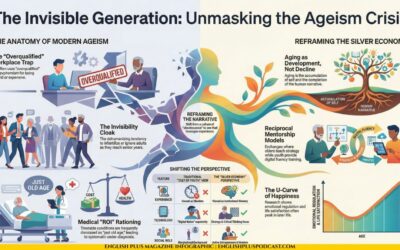

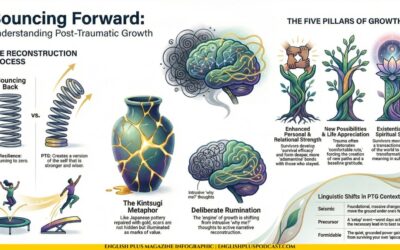






0 Comments